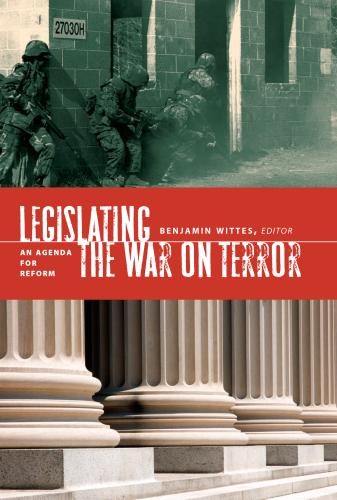Thank you for inviting me to testify today on the implementation of the 9/11 Commission report. The Commission has provided the essential outlines for strengthening our intelligence community and homeland security institution. It is now up to Congress and the president to exercise its judgment on whether and how to proceed, including areas that the Commission did not address.
Doing so would be easier if we were building from scratch, of course. We could erect a new intelligence organization with ease, putting the pipes and windows exactly where we wish. But we are dealing with existing structures, with all the peril that comings from past remodeling, outmoded technologies, creaky stairwells, and a patchwork of top-heavy structures, antiquated personnel systems, competing priorities, and incompatible protocols.
I do not need to remind this committee that the task is fraught with uncertainty. Move a pipe here, and you could weaken a load-bearing wall there in the war against terrorism; drill a hole here, and you could spring a leak there, both literally and figuratively, that could undermine the very security we seek. Thus, I applaud your decision to lay the foundation for thoughtful legislation by taking time from the August recess to hold this hearing.
I do not need to remind this committee that the overhaul now proposed would continue the task that began three years ago when Congress created the new Department of Homeland Security, and continued with the Defense Department personnel reform. You worked hard to smooth the bureaucratic boundaries in the new department, give the senior leadership the tools to build a performance-sensitive organization, and assure accountability throughout chain of command. So have the senior leaders of the new department. They deserve great credit for avoiding the needless layering that plagues so many federal agencies, including many directly affected by this hearing.
My purpose today is to highlight four issues that I believe must be considered as part of the proposed 9/11 reforms. First, we must reduce the thickening of the federal hierarchy that produced so much of the balkanization that the 9/11 Commission highlighted in its report. Second, we must address the need for reorganization across the entire federal government. Third, we must streamline the presidential appointments process. And fourth, we must provide the personnel flexibility needed to assure that our intelligence agencies will be able to recruit talented replacements for our maturing workforce.
Simply put, it makes little sense to create an entirely new super-structure to oversee and coordinate our intelligence agencies if (1) our intelligence agencies do not streamline their own hierarchies, (2) Congress and the president cannot move more quickly to address organizational confusion wherever it happens to arise, (3) presidential appointees continue to wait months to clear the nomination and confirmation process, and (4) the federal government cannot move talented recruits onto the job and into position more quickly.
Let me briefly address each of these issues in order.







Commentary
TestimonyImplementing the 9/11 Commission Report
August 3, 2004